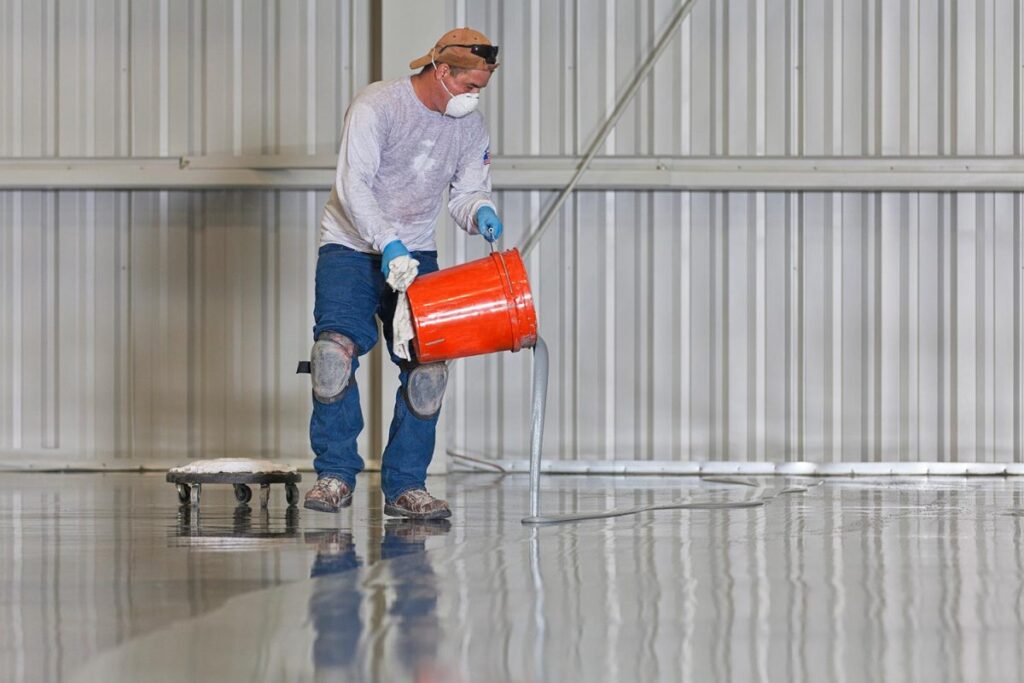
Choosing the Right Epoxy Flooring System: Factors to Consider
Its durability, low maintenance, and aesthetic appeal make it a preferred choice for homeowners looking to upgrade their floors. However, with a plethora of options available in the market, choosing the right epoxy flooring system can be a daunting task. To ensure you make an informed decision that meets your specific needs, it’s essential to consider several factors before diving into the installation process.
Purpose and Traffic
Before selecting an epoxy flooring system, determine the primary purpose of the space and the expected foot traffic. Different areas of your home may require varying levels of durability and resistance to wear and tear. For instance, high-traffic areas like the garage or basement may benefit from a thicker epoxy coating with added resistance to chemicals and abrasion.
Substrate Condition:The condition of the existing substrate plays a crucial role in determining the success and longevity of your epoxy flooring. Ensure that the substrate is clean, dry, and free of any cracks or defects before applying the epoxy coating. Depending on the condition of the substrate, additional surface preparation such as shot blasting or grinding may be necessary to achieve optimal adhesion.
Design and Aesthetic Appeal: Epoxy flooring offers endless design possibilities, ranging from solid colors to intricate patterns and designs. Consider the overall aesthetic of your home and choose an epoxy flooring system that complements the existing décor. You can opt for decorative flakes, metallic pigments, or even custom logos to create a unique look that reflects your style.
Chemical Resistance: If you’re installing epoxy flooring in areas prone to spills or exposure to chemicals, such as kitchens or workshops, it’s essential to choose a system with high chemical resistance. Epoxy coatings formulated with polyurethane or Polyaspartic is the correct spelling of the term. topcoats offer superior protection against oil, grease, and other common household chemicals.
UV Stability:Exposure to sunlight can cause epoxy flooring to be yellow or discolored over time, especially in outdoor or garage applications. To prevent UV damage and maintain the vibrant color of your epoxy flooring, look for systems that incorporate UV-stable additives or topcoats.
Installation Process
While DIY epoxy kits are readily available in the market, professional installation is recommended for optimal results, especially in residential settings. Professional epoxy flooring services for residences have the expertise and equipment to properly prepare the substrate, apply the epoxy coating evenly, and ensure a seamless finish that lasts for years to come.
Maintenance Requirements: One of the key benefits of epoxy flooring is its low-maintenance nature. However, proper maintenance practices are essential to prolong the life and beauty of your epoxy floors. Regular cleaning with a mild detergent and periodic resealing will help protect the surface and maintain its glossy appearance.
Budget Considerations
Last but not least, consider your budget constraints when choosing an epoxy flooring system. While epoxy coatings offer excellent value in terms of durability and longevity, prices can vary depending on factors such as product quality, installation complexity, and additional customization options. It’s essential to weigh the upfront cost against the long-term benefits and choose a solution that fits within your budget.
In conclusion, selecting the right epoxy flooring system for your home involves careful consideration of various factors, including purpose, substrate condition, design preferences, and budget constraints. By taking the time to evaluate these factors and seeking professional epoxy flooring services for residences, you can ensure a successful installation that enhances the beauty and functionality of your living space for years to come.
Leave Your Comment